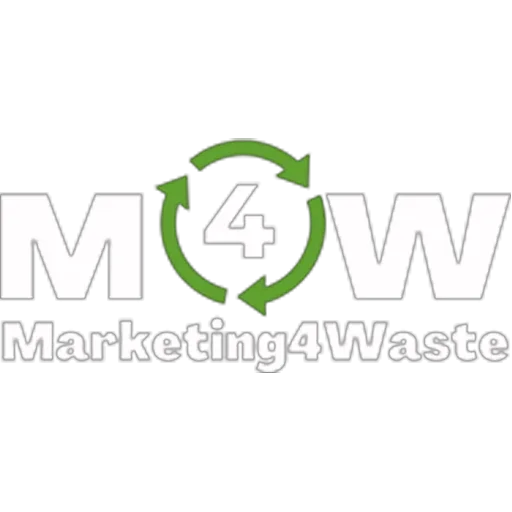Increase the Revenues of Your Waste Company With the Tips Shared in Our Blog Articles

The Alchemy of Independent Leadership: Structuring Your Waste Management Business for Success
In the dynamic and ever-evolving world of waste management, the importance of effective leadership and robust business practices cannot be overstated.
As business owners, we often wear many hats—strategist, spokesperson, and visionary.
However, one of the most crucial hats we must wear is that of a builder of a resilient and independent organization. Structuring your business to thrive independently of your direct control is not just a strategic advantage; it is essential for long-term success and resilience.
The Perils of Founder-Centric Businesses
History has shown us that companies overly reliant on their founders often face significant challenges.
High-profile failures such as WeWork, Theranos, and American Apparel serve as cautionary tales.
These companies struggled because they centered too much control and decision-making around their founders, leading to governance issues, financial mismanagement, and ethical lapses. As leaders in the waste management industry, we must learn from these examples and adopt strategies that ensure our companies can stand strong independently of us.
Strengthening Corporate Governance
Diversify Your Board
A diverse and independent board of directors is the cornerstone of strong corporate governance. By appointing directors with varied skills and perspectives who are not closely tied to you, you create a robust system of checks and balances.
This diversity ensures that no single individual has unchecked control, fostering a culture of accountability and strategic oversight.
Example:
- WeWork: Founder Adam Neumann maintained significant control through a dual-class share structure, limiting the board's ability to challenge his decisions. This led to unchecked spending and risky business practices, ultimately resulting in a failed IPO and significant financial losses.
Clear Roles and Responsibilities
Define and delineate the roles of the board, management, and yourself. Clarity in roles prevents overlap and ensures that everyone knows their responsibilities. Establishing committees for key areas such as audit, compensation, and governance can further enhance oversight and operational efficiency.
Example:
- Theranos: Elizabeth Holmes held multiple roles, including CEO and chairwoman, without clear delineation of responsibilities. This concentration of power prevented effective oversight and led to the perpetuation of fraudulent practices, ultimately resulting in the company’s collapse.
Enhancing Transparency and Communication
Regular Reporting
Transparency builds trust. Implement regular and comprehensive reporting practices that keep stakeholders informed about financial and operational statuses. Transparent reporting not only builds credibility but also enables timely identification and resolution of issues.
Example:
- American Apparel: Founder Dov Charney's lack of transparency about the company’s financial health and operational issues hindered investors' and stakeholders' ability to make informed decisions. This lack of transparency contributed to financial instability and eventual bankruptcy.
Open Communication Channels
Encourage open and honest communication within your organization. Create channels for employees to voice concerns or report issues without fear of retaliation. This openness fosters a culture of trust and continuous improvement.
Example:
- WeWork: The toxic culture under Neumann’s leadership discouraged employees from voicing concerns. The absence of open communication channels contributed to unethical behavior and poor decision-making, exacerbating the company’s difficulties.
Promoting Ethical Practices
Code of Conduct
Develop and enforce a robust code of conduct that outlines expected behaviors and ethical standards. Regular training on these practices ensures that all employees are aligned with the company’s values and legal requirements.
Example:
- Theranos: The lack of a robust code of conduct allowed unethical practices, such as misleading investors and regulators about the capabilities of their technology. This ultimately led to legal consequences and the company’s downfall.
Whistleblower Protections
Establish strong whistleblower protections to encourage reporting of unethical behavior. Clear processes for investigating and addressing reported issues are essential for maintaining integrity and trust within the organization.
Example:
- American Apparel: The absence of effective whistleblower protections allowed inappropriate behavior by Charney to go unreported for extended periods, contributing to a toxic work environment and damaging the company’s reputation.
Empowering Leadership and Talent
Delegate Authority
Empower your executives and managers with the authority to make decisions. Delegating not only helps in distributing the workload but also prepares the next generation of leaders. Trust in their abilities and provide them with the resources and autonomy they need to succeed.
Example:
- WeWork: Neumann’s reluctance to delegate authority led to a concentration of decision-making power. This stifled the development of other leaders within the company and contributed to operational inefficiencies.
Succession Planning
Developing a succession plan is crucial for ensuring continuity of leadership. Identify and groom potential leaders within your organization. A well-thought-out succession plan minimizes disruptions and ensures the company’s long-term stability.
Example:
- Theranos: Holmes’ failure to develop a succession plan left the company without clear leadership after her departure, exacerbating its collapse and hindering any potential recovery efforts.
Fostering a Healthy Corporate Culture
Cultural Assessment
Regularly assess the company’s culture to identify areas needing improvement. Use surveys, focus groups, and other tools to gather feedback from employees. A healthy culture that values mutual respect is the bedrock of a resilient organization.
Example:
- American Apparel: Charney’s influence created a culture marked by controversy and inappropriate behavior. Regular cultural assessments could have identified these issues earlier, allowing for corrective actions and potentially saving the company from its negative trajectory.
Mutual Respect
Promote mutual respect at all company levels. Creating an environment where people can share different perspectives without judgment leads to innovative solutions and a more harmonious workplace.
Example:
- WeWork: The lack of mutual respect under Neumann’s leadership stifled innovation and exacerbated operational issues. Promoting mutual respect could have led to more innovative and practical solutions to the company’s challenges.
Adopting Best Practices from Successful Companies
Benchmarking
Study governance and management practices from successful companies with strong oversight structures. Benchmarking against industry leaders allows you to adapt best practices to fit your unique needs, fostering continuous improvement.
Example:
- Theranos: Benchmarking against companies with strong ethics and governance practices could have provided Holmes with a framework to build a more honest and transparent organization, potentially avoiding the fraudulent practices that led to its downfall.
As waste management professionals, we aim to create effective solutions for our communities.
To achieve this, we must also build resilient businesses.
By structuring our companies to operate independently of our direct control, we ensure their adaptability and long-term success.
Let us take inspiration from the alchemy of transformation, turning the base elements of our organizations into gold through strategic governance, transparency, ethical practices, empowered leadership, and a healthy corporate culture.
Together, we can lead the way in transforming the waste management industry, ensuring that our companies survive and thrive independently, leaving a lasting legacy of excellence.
To Your Success,
Sam Barrili
The Waste Management Alchemist


© 2025 Marketing4waste - All Rights Reserved,
Marketing4Waste is a brand of MiM MarketingInterimManagers LLC
+1 801 804 5730
